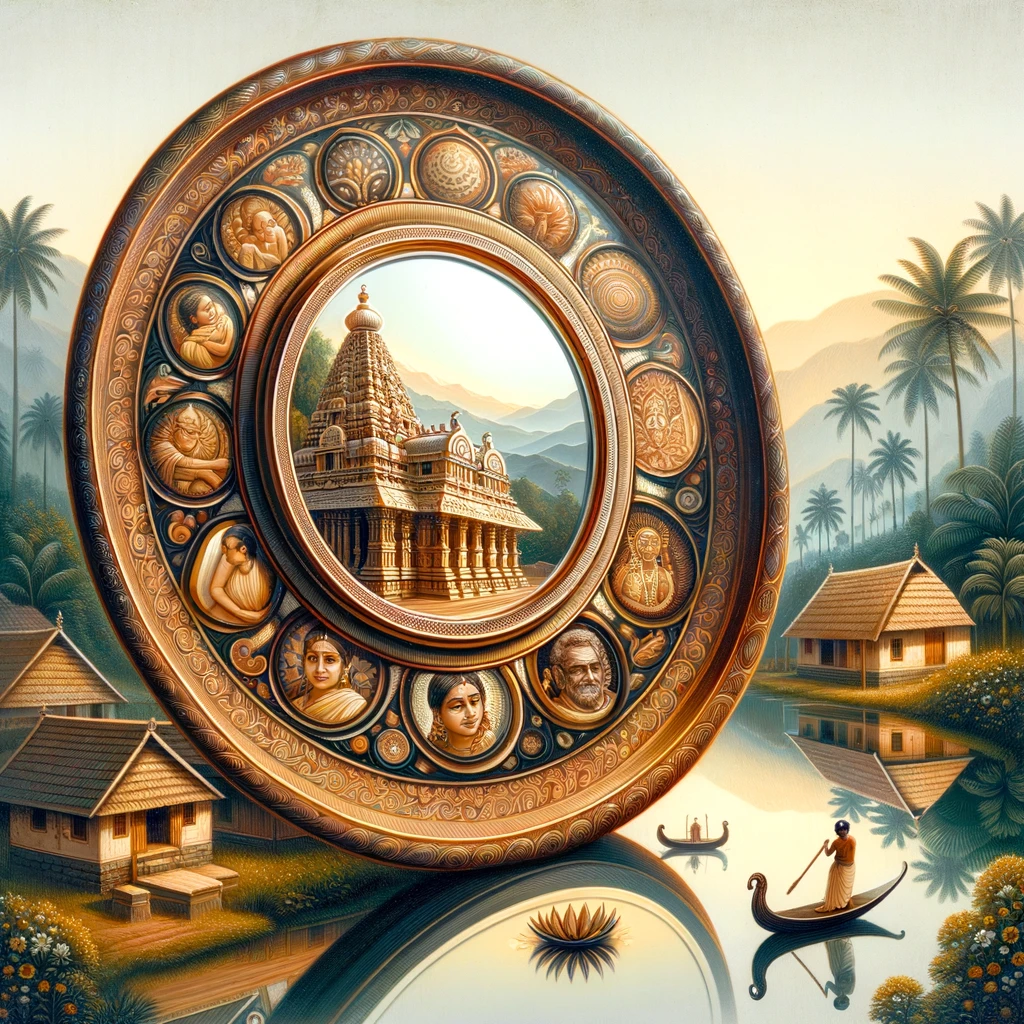The Aranmula Kannadi is a unique type of metal mirror that originates from Aranmula, a village in the state of Kerala, India. This mirror is not just a reflective object but also a cultural and spiritual symbol, deeply interwoven with the traditions and heritage of Kerala. Its crafting is a closely guarded secret, known only to a few families in Aranmula, making it a rare and valuable artifact.
Historical and Cultural Significance

The history of the Aranmula Kannadi is linked to the Aranmula Parthasarathy Temple, dedicated to Lord Krishna. Legend has it that the divine mirror was accidentally discovered by local craftsmen who were trying to make a crown for the deity using a particular alloy of copper and tin. The remarkable aspect of these mirrors is their clarity and the way they reflect light, which is unlike the typical glass mirrors. They are considered auspicious and are believed to bring good luck and prosperity to those who possess them.
Manufacturing Process
The exact metallurgical process used to make these mirrors is a closely guarded secret, known only to a few families in Aranmula. The mirrors are handcrafted, and the process involves a precise and skilled method of casting the metal alloy, followed by meticulous polishing to achieve a mirror-like finish. The composition of the metal alloy is what gives the mirror its unique reflective properties, and the manufacturing process ensures that the mirror is free from any distortion.
Artistic and Aesthetic Value

Each Aranmula mirror is a masterpiece of craftsmanship, with intricate designs that often include motifs from Hindu mythology or traditional Kerala art forms. The frame of the mirror is usually ornately crafted, adding to its aesthetic and artistic value. These mirrors are considered luxury items and are often used as decorative pieces in homes, temples, and during traditional ceremonies in Kerala.
Symbolism and Beliefs
In Kerala’s tradition, the Aranmula Kannadi is not merely a reflective surface but a symbol of one’s true self, encouraging introspection and the pursuit of clarity. It is also associated with Vastu Shastra, where it is believed to bring positive energy to homes and negate negative vibes.
Economic and Social Impact
The crafting of Aranmula Kannadi provides livelihood to several families in Aranmula, preserving their ancestral heritage and contributing to the local economy. However, the skill-intensive and time-consuming manufacturing process, combined with the limited number of artisans capable of creating these mirrors, makes them quite rare and expensive.
Global Acclaim and Cultural Treasure
Prestigious Recognition
The Aranmula Kannadi’s acclaim stretches far beyond its local origins, earning a place of honor in collections worldwide, including esteemed institutions like the London Museum. Its global appeal is a testament to its exquisite beauty and the skill of its creators, making it a coveted possession among connoisseurs and celebrities alike.
A Mirror Reflecting More than Just Images
Beyond its reflective surface, the Aranmula Kannadi is a conduit of well-being, believed to harmonize the energy of its surroundings, reflecting not just physical forms but the essence of purity and truth. Its presence in homes and sacred spaces is a beacon of positive energy, aligning with the principles of Vastu Shastra to create a milieu of peace and prosperity.
In conclusion, the Aranmula Kannadi is more than just a mirror; it is a piece of Kerala’s rich culture, reflecting the artistry, traditions, and spiritual beliefs of the region. Its uniqueness lies not only in its reflective quality but also in its embodiment of the region’s heritage and the artisans’ dedication to preserving this age-old craft.

